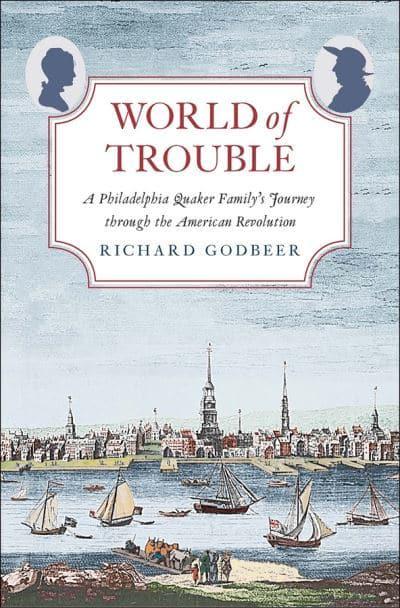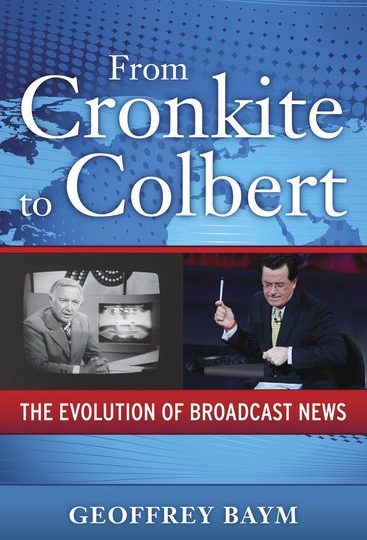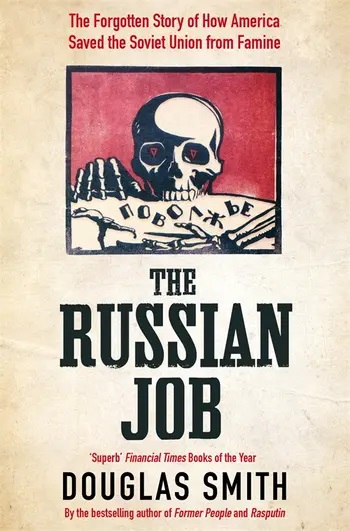Henry Drinker and Elizabeth Sandwith, both Philadelphia Quakers, were marry in January 1761. He was the child of a scrivener (an office representative) and, at age 26, a rising import-export vendor; she was the stranded girl of a trader and boat proprietor. As they sunk into wedded life, they had no suspicion that, in a little while, the world they knew would be flipped around — by political unsettling, financial blacklists and, at last, transformation.
Elizabeth kept voluminous journals during these years, and she and Henry kept the many letters that they traded when isolated. In “World of Trouble,” student of history Richard Godbeer draws on those assets and others, including Henry’s business correspondence, to depict in enlightening subtlety the occasionally emotional encounters of this Quaker family, living in a significant frontier city during a period of resistance and feeling relentless strain to change their strict convictions for the nationalist reason.
- ADVERTISING - continue reading below -
However Henry Drinker and to be sure most Quakers in the American states censured the crown’s dubious strategies — including the Stamp Act of 1765, forcing a duty on papers and different records — they stayed focused on pacifism and in this way to just tranquil change. It was a place that made Quakers, according to their inexorably insubordinate individual pioneers, minimal better than followers.
Regardless of the strain to participate in the blacklists that Britain’s strategies had enlivened, Henry and his colleague, an individual Quaker, in 1773 became neighborhood specialists for the East India Co. That company currently had a syndication on tea sent legitimately to the provinces and was before long castigated by American nationalists, not least for another imperial tax — the one that prompted the Boston Tea Party that very year.
After four years, after the upheaval had started, Drinker’s readiness to partner his firm with the East India Co. demonstrated horrendous. “That lamentable choice,” Mr. Godbeer expresses, “in mix with Henry’s standing as a main Quaker,” prompted his capture on doubt of conspiracy. Pennsylvania’s progressive government never brought explicit charges against him or the 29 others captured, for the most part Quaker radicals who pronounced impartiality in the War for Independence and would not join either side.
Drinker and the others were tossed into a stopgap jail. Ten of them consented to sign a promise of loyalty to Pennsylvania’s new system and were liberated. Henry and the 19 others, adhering to their position of nonpartisanship and their Quaker detestation of swearing promises, declined. Regardless of tolerant visiting honors, the men and their families were insulted at what Elizabeth Drinker called “the oppressive lead of the present fiendish rulers.”
After about seven days, the 20 men were sent someplace far off, banished in shame in Virginia. As the carts stole them away, far off gunfire could be heard as nationalists in the Battle of Brandywine attempted to end the British development toward Philadelphia. In Winchester, Va., the men were dealt with mercifully subsequent to making a deal to avoid getting away. The next April, Elizabeth and three different spouses went on a dangerous mission to argue for the detainees with progressive specialists, first halting in Valley Forge, where they met sincerely with Gen. George Washington. He gave them a pass to see Pennsylvania’s chief chamber in Lancaster. On their way there, they discovered that the committee had chosen to free the detainees.
Thus, eight months after they had left Philadelphia, the men were at last permitted to get back home. During those months, two exiles had kicked the bucket, and Henry himself had persevered through difficult disease. For himself and Elizabeth, and for their five enduring youngsters (out of eight brought into the world by then), the constrained division had been, as Mr. Godbeer puts it, “a nerve racking trial.” Henry and his colleague had shut their firm when overseas exchange imploded, yet he currently directed his concentration toward a New Jersey ironworks of which he had turned into a section proprietor.
In Mr. Godbeer’s elegantly composed and captivating review — which goes past the conflict’s effect and looks for, to the extent that conceivable, to catch the Drinkers’ lives in full — he presents Henry and Elizabeth thoughtfully yet not carelessly. While both “upheld the liberation of slaves,” Mr. Godbeer says, Elizabeth wrote in one journal section that blacks were “close” yet “not exactly similar species.” Though she regarded dark workers as well as she whited ones, she held onto, in Mr. Godbeer’s view, a “profoundly imbued prejudice,” mirroring that of the bigger society.
At the point when fresh insight about the British acquiescence at Yorktown in 1781 arrived at Philadelphia, Quaker houses, like the Drinkers’, that needed celebratory candles in their windows were gone after by miscreants. The Drinkers lost around 70 sheets of glass. Harm somewhere else was more terrible, and Henry’s sibling was severely beaten.
In the new post-progressive period, Elizabeth needed to run her family with “progressively self-assured” workers, while Henry attempted “to rethink himself as a morally determined business visionary,” Mr. Godbeer composes. He purchased lots of land in Pennsylvania and New York, wanting to offer bundles to Quakers who might shape cultivating networks and treat the neighborhood Indian countries with deference. He likewise expected to utilize his territory’s copious sugar maples to transform maple syrup into a public trade for West Indies pure sweetener, subsequently “striking a blow against African subjection in the Caribbean.”
Both of Henry’s endeavors demonstrated disheartening — and monetarily depleting. All things considered, he and Elizabeth, Mr. Godbeer says, had “made for them as well as their kids a sanctuary of solace and cherishing support that supported them all around ok through all that they needed to persevere.” In the end, “World of Trouble” is a story not just of versatility in that frame of mind of difficulty however of the hazards of practicing opportunity of still, small voice — in any event, when the reason that undermines it tends to be properly viewed as a battle for opportunity itself.
- ADVERTISING - continue reading below -
World of Trouble by Richard Godbeer (This book has 460 pages)
Rating : 4.5 Stars
Views: 0



